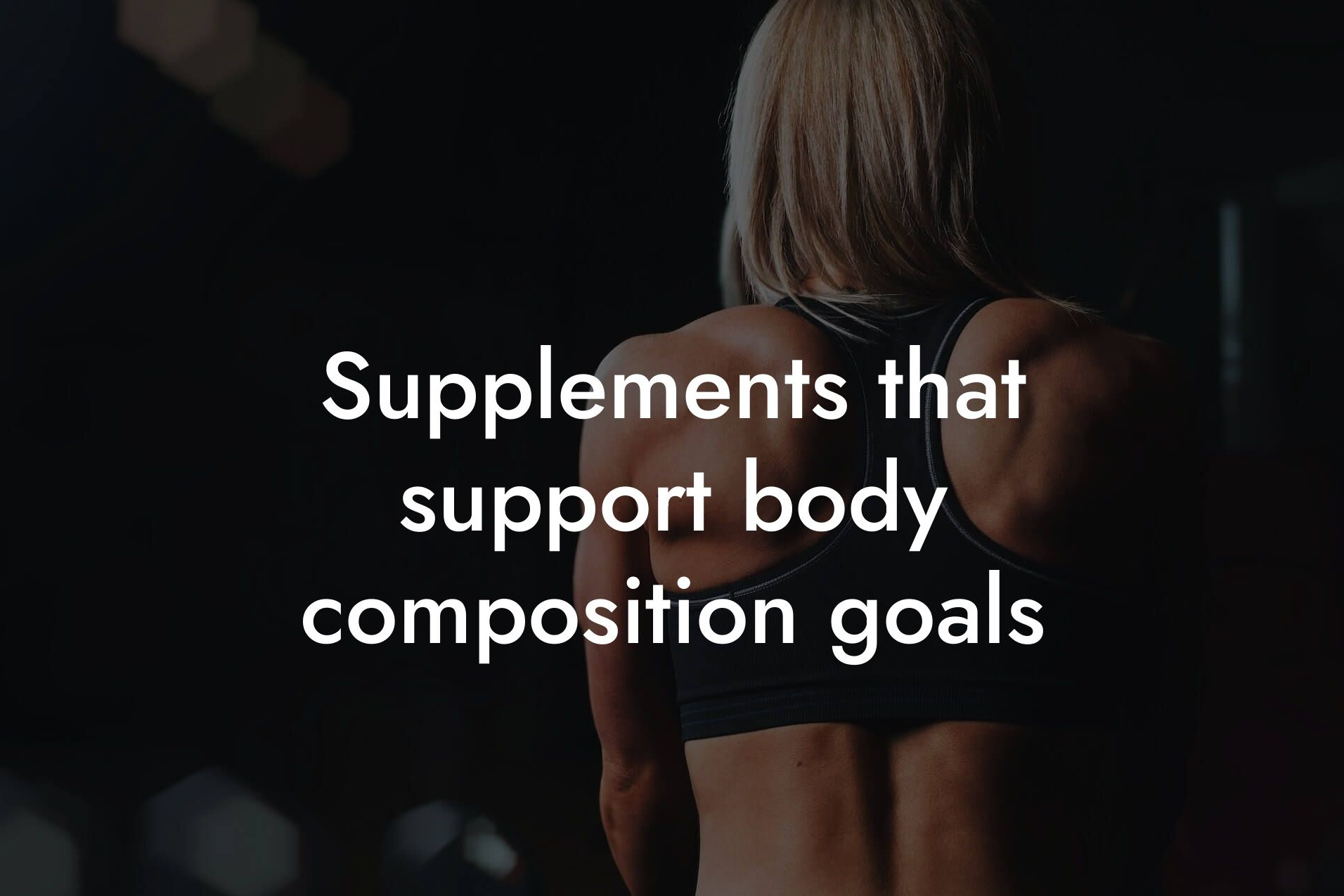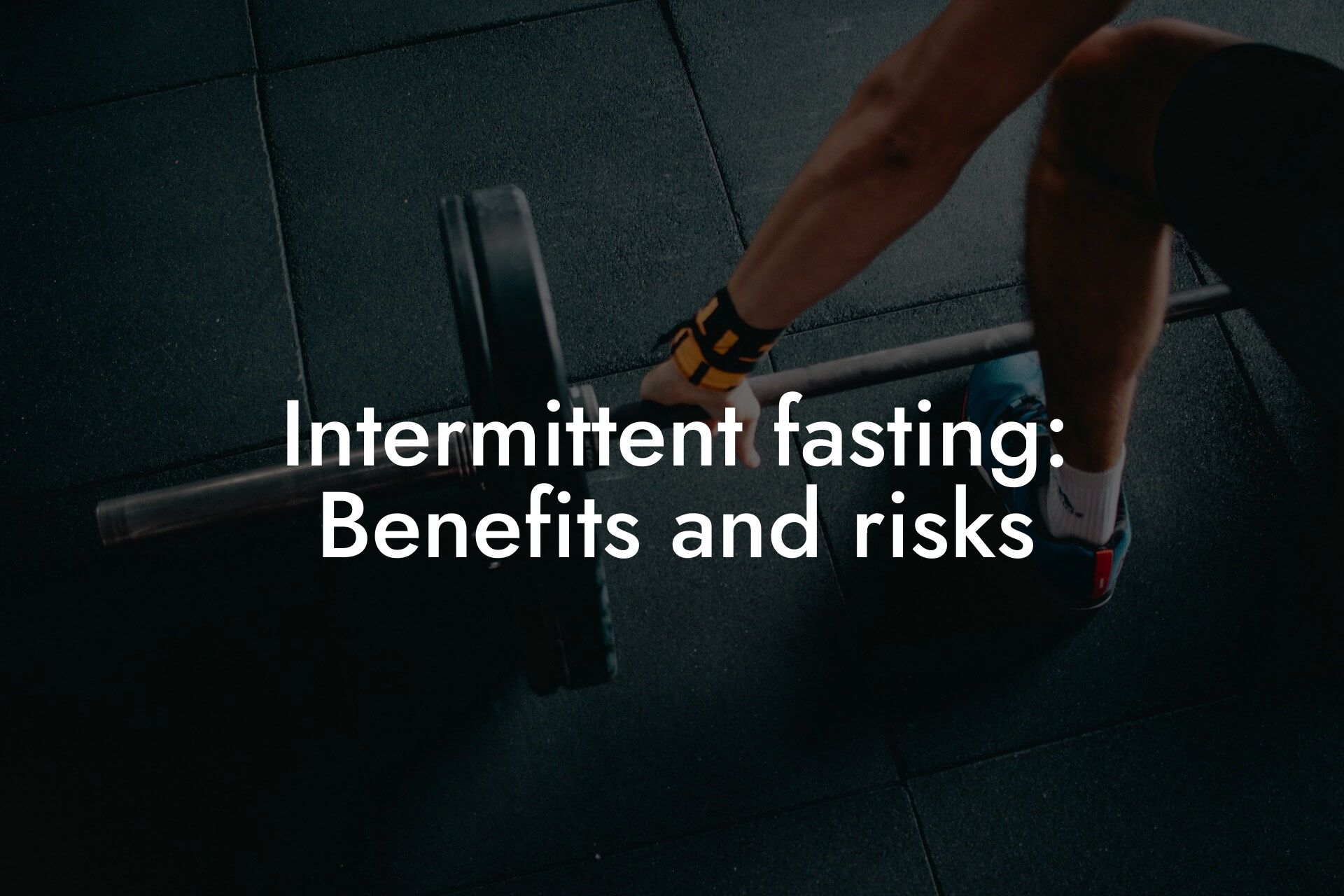As a high-earning professional, you understand the importance of maintaining a healthy and lean physique. Excess body fat can not only affect your physical appearance but also impact your overall health and wellbeing. At Tano Performance Group, we believe that achieving your ideal body composition is crucial for taking your business to the next level. In this article, we will explore the best diets for reducing body fat, helping you make informed decisions about your nutrition and fitness journey.
Table of Contents
Understanding Body Fat Percentage
Before we dive into the best diets for reducing body fat, it's essential to understand what body fat percentage is and how it's measured. Body fat percentage is the percentage of your body weight that is comprised of fat. For men, a healthy body fat percentage is typically between 8-19%, while for women, it's between 21-33%. Having a high body fat percentage can increase your risk of chronic diseases, such as diabetes, heart disease, and certain types of cancer.
At Tano Performance Group, we use advanced DEXA machine technology to provide accurate body fat percentage measurements. Our comprehensive body assessment provides you with a detailed breakdown of your body composition, including lean mass, bone density, and fat mass. This information empowers you to make data-driven decisions about your diet and fitness routine, helping you achieve your goals faster and more efficiently.
Low-Carb Diets
Low-carb diets have been popular for decades, and for good reason. By restricting carbohydrate intake, your body is forced to burn stored fat for energy, resulting in significant weight loss and improved body composition. Some of the most effective low-carb diets include:
The Atkins Diet: This diet restricts carbohydrate intake in the initial phases, gradually increasing it as you progress. The Atkins Diet is highly effective for weight loss and improving blood sugar control.
The Ketogenic Diet: This diet is extremely low in carbohydrates, moderate in protein, and high in fat. The ketogenic diet has been shown to be highly effective for weight loss, improving blood sugar control, and reducing inflammation.
The Paleo Diet: This diet focuses on whole, unprocessed foods, eliminating grains, dairy, and processed foods. The Paleo Diet is an excellent choice for those looking to improve their overall health and wellbeing.
Low-Fat Diets
Low-fat diets, on the other hand, focus on restricting fat intake to promote weight loss and improve body composition. Some of the most effective low-fat diets include:
The Ornish Diet: This diet is extremely low in fat, emphasizing whole, plant-based foods. The Ornish Diet has been shown to be highly effective for weight loss, improving blood sugar control, and reducing cardiovascular disease risk.
The Pritikin Diet: This diet is low in fat, moderate in protein, and high in complex carbohydrates. The Pritikin Diet has been shown to be highly effective for weight loss, improving blood sugar control, and reducing cardiovascular disease risk.
Mediterranean Diets
Mediterranean diets are characterized by high consumption of fruits, vegetables, whole grains, and healthy fats, such as those found in olive oil. Some of the most effective Mediterranean diets include:
The Mediterranean Diet: This diet is high in fruits, vegetables, whole grains, and healthy fats, and low in red meat and processed foods. The Mediterranean Diet has been shown to be highly effective for weight loss, improving heart health, and reducing chronic disease risk.
The Okinawa Diet: This diet is high in fruits, vegetables, whole grains, and healthy fats, and low in red meat and processed foods. The Okinawa Diet has been shown to be highly effective for weight loss, improving heart health, and reducing chronic disease risk.
Intermittent Fasting
Intermittent fasting is a dietary approach that involves restricting calorie intake for certain periods of time. Some of the most effective intermittent fasting methods include:
16:8 Method: This method involves restricting calorie intake for 16 hours, and eating within an 8-hour window. The 16:8 method has been shown to be highly effective for weight loss, improving insulin sensitivity, and reducing inflammation.
5:2 Diet: This method involves restricting calorie intake to 500-600 calories on two non-consecutive days of the week, and eating normally on the other five days. The 5:2 diet has been shown to be highly effective for weight loss, improving insulin sensitivity, and reducing inflammation.
Portion Control and Mindful Eating
Portion control and mindful eating are essential for achieving and maintaining a healthy body composition. By paying attention to your hunger and fullness cues, you can avoid overeating and make healthier food choices. Some tips for portion control and mindful eating include:
Eating slowly and savoring your food
Avoiding distractions while eating, such as watching TV or scrolling through your phone
Using smaller plates to control portion sizes
Drinking plenty of water throughout the day to stay hydrated
Hydration and Exercise
Hydration and exercise are crucial for achieving and maintaining a healthy body composition. Adequate hydration helps to boost metabolism, improve digestion, and reduce inflammation. Regular exercise, on the other hand, helps to build lean muscle mass, improve cardiovascular health, and increase metabolism. Some tips for hydration and exercise include:
Drinking at least eight glasses of water per day
Aiming for 150 minutes of moderate-intensity exercise per week
Incorporating strength training exercises to build lean muscle mass
Getting enough sleep each night to aid in recovery and muscle growth
Reducing body fat percentage requires a combination of a healthy diet, regular exercise, and mindful eating habits. By incorporating some of the diets and strategies outlined in this article, you can achieve your ideal body composition and take your business to the next level. Remember, at Tano Performance Group, we're committed to helping you achieve your goals through our comprehensive body assessments and personalized coaching. Take the first step towards a leaner, healthier you today!
Frequently Asked Questions
What is the best diet for reducing body fat?
There is no one-size-fits-all answer to this question, as the best diet for reducing body fat will vary depending on individual factors such as lifestyle, dietary preferences, and health goals. However, some of the most effective diets for reducing body fat include the ketogenic diet, intermittent fasting, and a low-carb diet. These diets work by restricting the intake of certain macronutrients, such as carbohydrates, to induce weight loss and improve body composition.
How does the ketogenic diet work for weight loss?
The ketogenic diet works by putting the body into a state of ketosis, in which it burns fat for energy instead of carbohydrates. This is achieved by drastically reducing the intake of carbohydrates and increasing the intake of fat, with moderate protein consumption. As a result, the body is forced to adapt and use fat as its primary source of energy, leading to increased fat loss and improved body composition.
What are the benefits of intermittent fasting for weight loss?
Intermittent fasting has been shown to have numerous benefits for weight loss, including increased fat burning, improved insulin sensitivity, and reduced inflammation. By restricting the eating window, intermittent fasting allows the body to enter a fasting state, in which it is forced to burn stored fat for energy. This can lead to significant weight loss and improved body composition over time.
How does a low-carb diet work for weight loss?
A low-carb diet works by restricting the intake of carbohydrates, which are the body's primary source of energy. By reducing carbohydrate intake, the body is forced to adapt and use alternative sources of energy, such as fat. This can lead to increased fat loss and improved body composition, as well as improved blood sugar control and reduced inflammation.
What are the best foods for reducing body fat?
The best foods for reducing body fat are those that are high in protein, moderate in fat, and low in carbohydrates. These include foods such as lean meats, fish, eggs, dairy products, and vegetables. It's also important to include healthy fats, such as avocado and nuts, in the diet to support hormone production and overall health.
What are the worst foods for reducing body fat?
The worst foods for reducing body fat are those that are high in carbohydrates, added sugars, and unhealthy fats. These include foods such as sugary drinks, refined grains, and processed snacks. It's also important to limit the intake of saturated and trans fats, which can hinder weight loss and overall health.
How much protein do I need to eat to reduce body fat?
The amount of protein needed to reduce body fat will vary depending on individual factors such as weight, activity level, and health goals. However, a general rule of thumb is to consume at least 1 gram of protein per pound of body weight per day. This can help to support muscle growth and maintenance, as well as overall health and well-being.
How often should I exercise to reduce body fat?
The frequency and intensity of exercise needed to reduce body fat will vary depending on individual factors such as fitness level and health goals. However, a general rule of thumb is to aim for at least 150 minutes of moderate-intensity exercise per week, with at least 2-3 days of strength training per week. This can help to support muscle growth and maintenance, as well as overall health and well-being.
What is the best type of exercise for reducing body fat?
The best type of exercise for reducing body fat is high-intensity interval training (HIIT). This type of exercise involves short bursts of high-intensity exercise followed by brief periods of rest. HIIT has been shown to be effective for improving insulin sensitivity, increasing fat burning, and improving overall health and well-being.
How long does it take to see results from a diet and exercise program?
The amount of time it takes to see results from a diet and exercise program will vary depending on individual factors such as starting point, consistency, and overall health. However, with a consistent and well-planned diet and exercise program, it's possible to see noticeable results in as little as 2-3 weeks. Significant results can be seen in 6-12 weeks, and optimal results can be achieved in 6-12 months.
What are the most common mistakes people make when trying to reduce body fat?
Some of the most common mistakes people make when trying to reduce body fat include not creating a calorie deficit, not eating enough protein, not incorporating strength training, and not getting enough sleep. Additionally, many people make the mistake of relying too heavily on cardio exercise and not incorporating high-intensity interval training (HIIT) into their routine.
How can I track my progress when trying to reduce body fat?
There are several ways to track progress when trying to reduce body fat, including taking body measurements, tracking weight, and monitoring body fat percentage. It's also important to track progress photos, as well as measurements of waist circumference and hip circumference. Additionally, tracking food intake and exercise habits can help to identify areas for improvement and optimize progress.
What are the benefits of tracking progress when trying to reduce body fat?
Tracking progress when trying to reduce body fat can help to identify areas for improvement, stay motivated, and optimize results. By tracking progress, individuals can see how their diet and exercise habits are impacting their body composition and make adjustments as needed. This can help to stay on track and achieve optimal results.
How can I stay motivated when trying to reduce body fat?
Staying motivated when trying to reduce body fat can be challenging, but there are several strategies that can help. These include setting realistic goals, finding a workout buddy, and rewarding progress. Additionally, tracking progress and celebrating small victories can help to stay motivated and on track.
What are the most common myths about reducing body fat?
Some of the most common myths about reducing body fat include the idea that low-fat diets are effective, that cardio exercise is the best way to burn fat, and that spot reduction is possible. Additionally, many people believe that they need to spend hours in the gym every day to see results, or that they need to completely eliminate certain foods from their diet.
What are the risks of extreme dieting and exercise?
The risks of extreme dieting and exercise include malnutrition, dehydration, and increased risk of injury. Additionally, extreme dieting and exercise can lead to disordered eating habits, as well as increased stress and anxiety. It's important to approach diet and exercise in a balanced and sustainable way to avoid these risks.
How can I maintain weight loss over time?
Maintaining weight loss over time requires a long-term commitment to healthy diet and exercise habits. This includes continuing to eat a balanced diet, staying hydrated, and incorporating regular exercise into daily routine. Additionally, it's important to stay consistent and avoid falling back into old habits.
What are the benefits of working with a personal trainer or nutritionist?
Working with a personal trainer or nutritionist can provide individualized guidance and support, as well as help to create a personalized diet and exercise plan. This can help to optimize results and stay on track, as well as provide accountability and motivation.
How can I get started with a diet and exercise program?
Getting started with a diet and exercise program can seem overwhelming, but it's as simple as taking the first step. This can involve consulting with a healthcare professional, working with a personal trainer or nutritionist, or starting with small changes to diet and exercise habits. The key is to start small and be consistent, and to be patient and stay committed to long-term goals.
What are the benefits of incorporating strength training into a diet and exercise program?
Incorporating strength training into a diet and exercise program can help to build muscle mass, increase metabolism, and improve overall health and well-being. This can also help to improve bone density, reduce the risk of injury, and enhance athletic performance.
How can I make healthy habits a part of my lifestyle?
Making healthy habits a part of daily lifestyle requires a long-term commitment to prioritizing health and well-being. This can involve making small changes to daily habits, such as taking the stairs instead of the elevator, or incorporating healthy habits into daily routine, such as meditation or journaling.
What are the benefits of incorporating mindfulness into a diet and exercise program?
Incorporating mindfulness into a diet and exercise program can help to reduce stress and anxiety, improve overall health and well-being, and increase self-awareness. This can also help to improve body image and reduce disordered eating habits.
Here are some related articles you might love...
- Hydration and its impact on performance and physique
- Supplements that support body composition goals
- Intermittent fasting: Benefits and risks
- The importance of protein for muscle growth
- Macronutrient balance for physique enhancement
- Managing cravings and diet pitfalls
- Nutrition tips for busy professionals
- How to meal prep for body composition goals
- How to eat for bone health
Zak Faulkner
Zak Faulkner is a leading authority in the realm of physical health and body composition analysis, with over 15 years of experience helping professionals optimise their fitness and well-being. As one the experts behind Tano Performance Group, Zak has dedicated his career to providing in-depth, science-backed insights that empower clients to elevate their physical performance and overall health.
With extensive knowledge of DEXA technology, Zak specializes in delivering comprehensive body assessments that offer precise data on body fat, muscle mass, bone density, and overall physique. His expertise enables individuals to make informed decisions and achieve their fitness goals with accuracy and confidence. Zak’s approach is rooted in a deep understanding of human physiology, combined with a passion for helping clients unlock their full potential through personalised strategies.
Over the years, Zak has earned a reputation for his commitment to excellence, precision, and client-focused service. His guidance is trusted by top professionals who demand the best when it comes to their health. Whether advising on fitness programs, nutritional strategies, or long-term wellness plans, Zak Faulkner’s insights are a valuable resource for anyone serious about taking their health and fitness to the next level.
At Tano Performance Group, Zak continues to lead our Content Team revolutionising how professionals approach their physical health, offering unparalleled expertise that drives real results.




